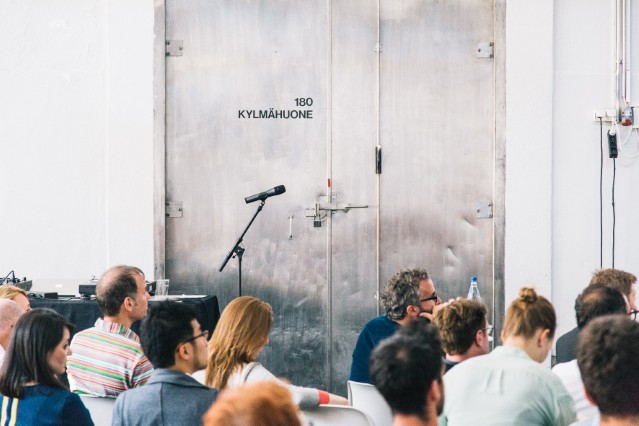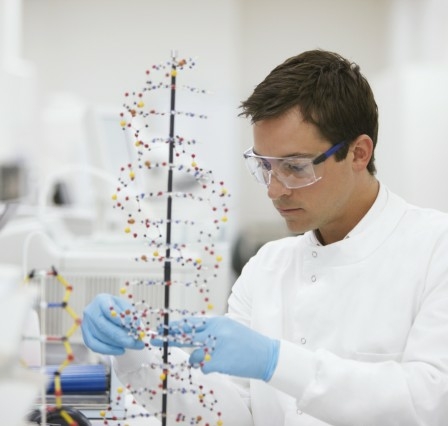… and what else has come up during the formulation of the genome strategy.
Last spring, I participated in Cardio Compass, a joint project by the Institute for Molecular Medicine Finland (FIMM), the Finnish Red Cross Blood Service and Sitra. By the end of the year, the project will already have provided new information on ways of using genetic information as a preventive healthcare tool.
I have yet to receive the results of my genetic test, but a great deal has happened since the sample was taken. SalWe’s new research programme, “Personalised diagnostics and treatment”, was launched in July. The GeneRISK study under this programme will continue the work begun in Cardio Compass.
Preparation of the national genome strategy has also kicked off following the summer. This idea has long been under discussion in several forums, including the Advisory Board on Biotechnology. Sitra also supported the idea and offered assistance, which was one of the decisive factors in getting started on the work. At last, the time was ripe! The late Leena Palotie would be pleased if she knew.
It is important that the strategy’s formulation, led by the Ministry of Social Affairs and Health, be performed openly. The drafting process is at least as important as the outcome to securing the commitment of all those involved. Communication issues have also been addressed, which is essential to raising awareness and encouraging discussion.
The work involves researchers, doctors, authorities, representatives of patient organisations, lawyers, ethicists, sociologists, company employees and those funding the research. Only in this way can the highest possible number of perspectives be obtained.
The most substantial contribution will be made by the researchers and doctors, however. At a workshop, Samuli Ripatti, a professor of biometry, explained how important it is to be aware of the cardiovascular disease risks which genetic testing can reveal. At the moment, a treatment has to be chosen on the basis of lifestyle, which can often lead physicians astray. It does seem wasteful that statins are unnecessarily prescribed for patients for whom there is no real risk, although their lifestyle would seem to indicate otherwise. On the other hand, many people with a healthy lifestyle fail to receive statin medication because their hereditary risk remains unknown. Consider those who unexpectedly suffer a heart attack at the age of fifty, despite leading a healthy lifestyle and being of normal weight.
Lauri Aaltonen has had a long career in the study of colon cancer. Genes predisposing a person to cancer were first discovered around the time he began his research career, more than 20 years ago. Now, some 500 families in Finland have been identified as carrying a gene mutation predisposing them to colon cancer. This means more than 2 000 individuals. Screenings can be arranged for these people, or aspirin can be prescribed for them. Another new application has been found for this wonder drug!
In her presentation, Kristiina Aittomäki told us about a young female patient. It felt psychologically difficult, at her age, to find out whether she happened to carry a gene mutation that would predispose her to breast cancer, thus profoundly changing her life. She was inspired to do so by the case of her own family, in which there had been several cases of cancer. Fortunately, she is not alone. After Angelina Jolie made her own story public, many others have stepped forward to share their stories.
Kristiina’s story was an eye-opener for many. This female patient is not the only one to have the gene mutation. It may also occur in her siblings, cousins, second cousins … my genes are not mine alone!
But should we share our knowledge with our relatives? Would I want to know if risk genes had been found in my family? When formulating the strategy, account has to be taken of whether consent should include consent to the disclosure of the information to relatives, and, on the other hand, consent to receive information oneself. Everyone should have the right to know, but also the right not to know, if they so prefer.
When I think about the kinds of things I would be happy to hear about, this would undoubtedly include information on risks for which treatment is available, or which I could affect myself. Cardiovascular diseases are a good example of just such a risk. What about cancers and Alzheimer’s disease? Scary.
Or is it? Research shows that, as matter of fact, uncertainty is even worse than bad news.
Many important questions will need to be addressed during the formulation of the genome strategy. The previous examples were taken from genome research projects. How is the information obtained from them transferred to the patient registry and the public healthcare domain? At the moment, it isn’t.
What if you want to find out about your own genetic heritage and the potential risks? You could participate in genome studies, such as the GeneRISK study next year. Otherwise, your only option is international service companies, who can draw up risk maps for you. However, the interpretation of such maps is left to you.
Could public healthcare provide a service based on which anyone who is interested can buy such information and the related consultation? Society could provide such a service to separately identified risk groups.
Only comprehensive preparatory work will ensure that all of the relevant issues are taken into consideration in the preparation of the strategy. The work will continue by focusing on ethical questions.





Recommended